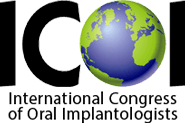What are the advantages of dental implants compared to other tooth replacement options?
Advantages of dental implants compared to other tooth replacement options include a natural look and feel, improved speech, comfort, better oral health, and a longer lifespan. Dental implants are designed to function just like your natural teeth, and they are made of biocompatible materials that are accepted by your body. They also help to preserve your jawbone, which helps to maintain the natural shape of your face and prevent the sunken-in look that can occur with tooth loss.
What is the success rate of dental implants?
The success rate of dental implants is high, with studies reporting success rates of 95-98%. This high success rate is due in part to advancements in dental technology and materials, as well as the fact that dental implants are designed to fuse with your jawbone for a secure, long-lasting hold. Additionally, proper placement and care of dental implants can help to ensure their longevity and success.
Can dental implants be placed if I have no teeth at all?
Yes, dental implants can replace a set of missing teeth even if you have no teeth remaining in your mouth. This is done by placing multiple dental implants in the jawbone which will anchor and support a custom denture or fixed bridge prosthetic. Having adequate bone density in the jaw is a crucial factor when placing multiple implants for tooth replacement.
Do dental implants require any special care?
Proper oral hygiene and regular dental checkups are essential for the long-term success and longevity of dental implants. Brush and floss around implants daily to keep the area plaque-free, and your dentist may also recommend using special brushes or other tools to properly clean around the implant posts. Additionally, avoid eating very hard, crunchy, or sticky foods that could damage or dislodge the implants.
How long is the recovery time after implant surgery?
The typical recovery time after initial dental implant surgery is usually one to two weeks. During the first couple weeks of recovery, it’s normal to experience some mild swelling, bruising, or minor pain around the implantation site as it starts to heal. Your dentist will provide detailed post-operation care instructions to properly support your recovery after implant surgery.
Do I need to have a temporary replacement tooth while implants heal?
Often, a temporary prosthetic tooth is placed on the implant post until the implant fully integrates with the jawbone and is ready to support a permanent artificial tooth. This temporary tooth helps maintain the shape and function of the gums and soft tissues while the implant fuses to the bone over three to six months.
Do dental implants require grafting procedures?
If the density of the jawbone is insufficient at the implantation site, bone grafting procedures may need to be done first to build up the bone and allow it to properly support the implant. Once adequate bone density is achieved through bone grafting, the dental implant can then be placed successfully.
Can dental implants be placed on the upper and lower jaws?
Dental implants can be placed in both the upper and lower jaws, making them a versatile option for people who are missing one or more teeth. The placement process involves carefully positioning the implant in your jawbone and allowing it time to fuse with the bone before adding a crown or other tooth replacement. This process is performed by a trained dental professional, typically under local anesthesia, to ensure the comfort of the patient.
Are dental implants a permanent solution?
Dental implants are considered a permanent solution when properly cared for, with a lifespan of several decades or more. This longevity is because dental implants are made of biocompatible materials that are accepted by your body, as well as the secure hold they have in your jawbone. Proper oral hygiene, regular dental check-ups, and avoiding habits like clenching or grinding your teeth can help to ensure the longevity of your dental implants.
How long does it take to recover from dental implant surgery?
Recovery time after dental implant surgery varies depending on the individual and the extent of the procedure, but most people can return to their normal routine within a few days to a week. During this time, you may experience some mild discomfort and swelling, but these symptoms can typically be managed with over-the-counter pain medication. Your dental professional will provide you with detailed instructions for aftercare and can answer any questions you may have about the healing process.
Can I eat normally after getting dental implants?
Yes, you can eat normally after getting dental implants, although you may need to avoid hard or crunchy foods for a short time while the implants heal. Your dental professional will provide you with specific instructions regarding what you can and cannot eat during the healing process, but in general, most people can eat their normal diet within a few days of getting dental implants.
Are dental implants covered by insurance?
Coverage for dental implants varies depending on the insurance policy and the individual’s specific circumstances. It is best to check with your insurance provider to see if dental implants are covered. In some cases, insurance may cover a portion of the cost of dental implants, or they may only cover a portion of the related procedures, such as the placement of the implant or the placement of the crown. It is important to understand your coverage before undergoing dental implant treatment.
Restore Your Smile with Permanent Dental Implants
If you’re looking to replace missing teeth and restore your smile, consider dental implants by Drs. Larson. These implants provide a permanent and natural-looking solution that can improve your oral health and quality of life. They will work with you to determine if dental implants are the right option for you, and create a personalized treatment plan to ensure the best possible results. Don’t let missing teeth hold you back any longer, contact our Prescott Valley dentiststo learn more about dental implants. Don’t wait, take action today and call (928) 237-9064 to schedule your consultation.


